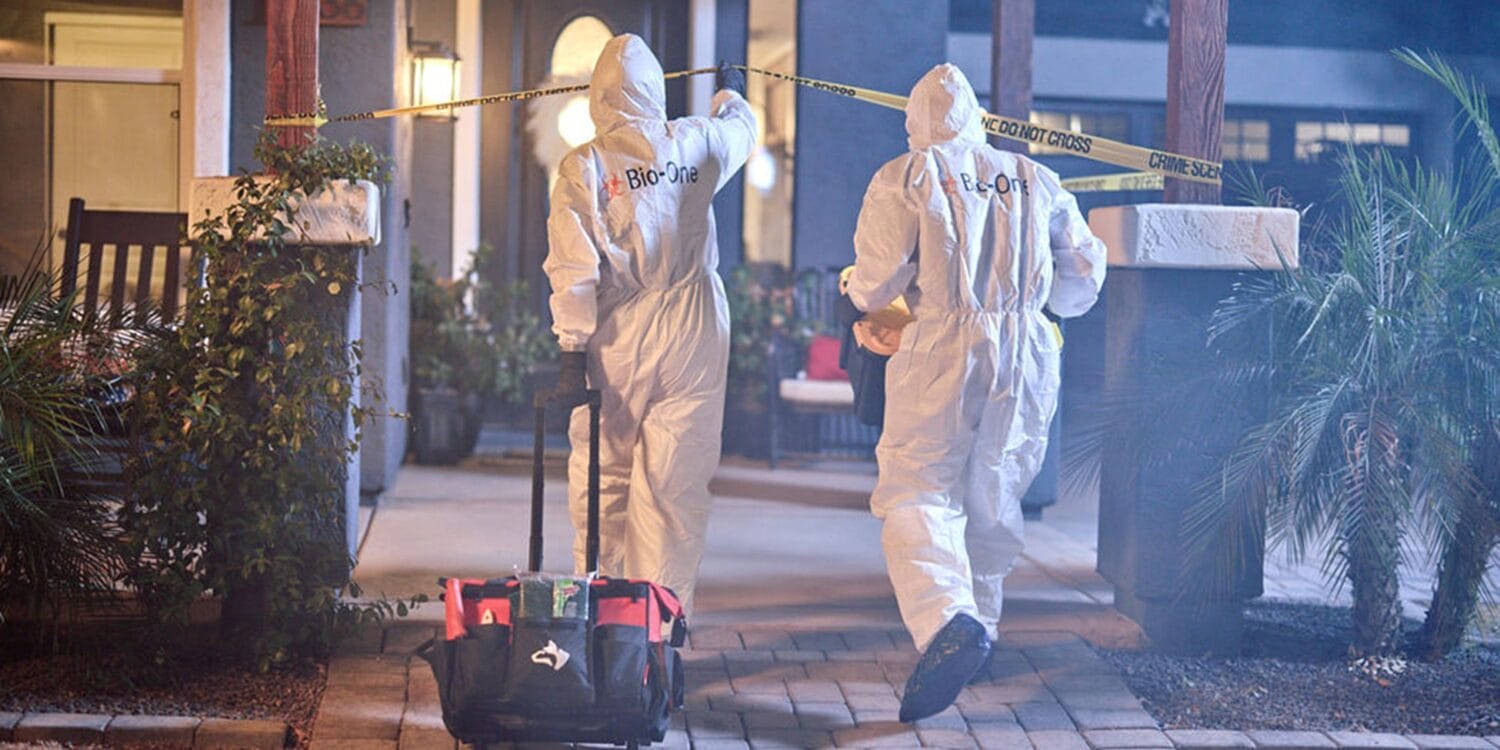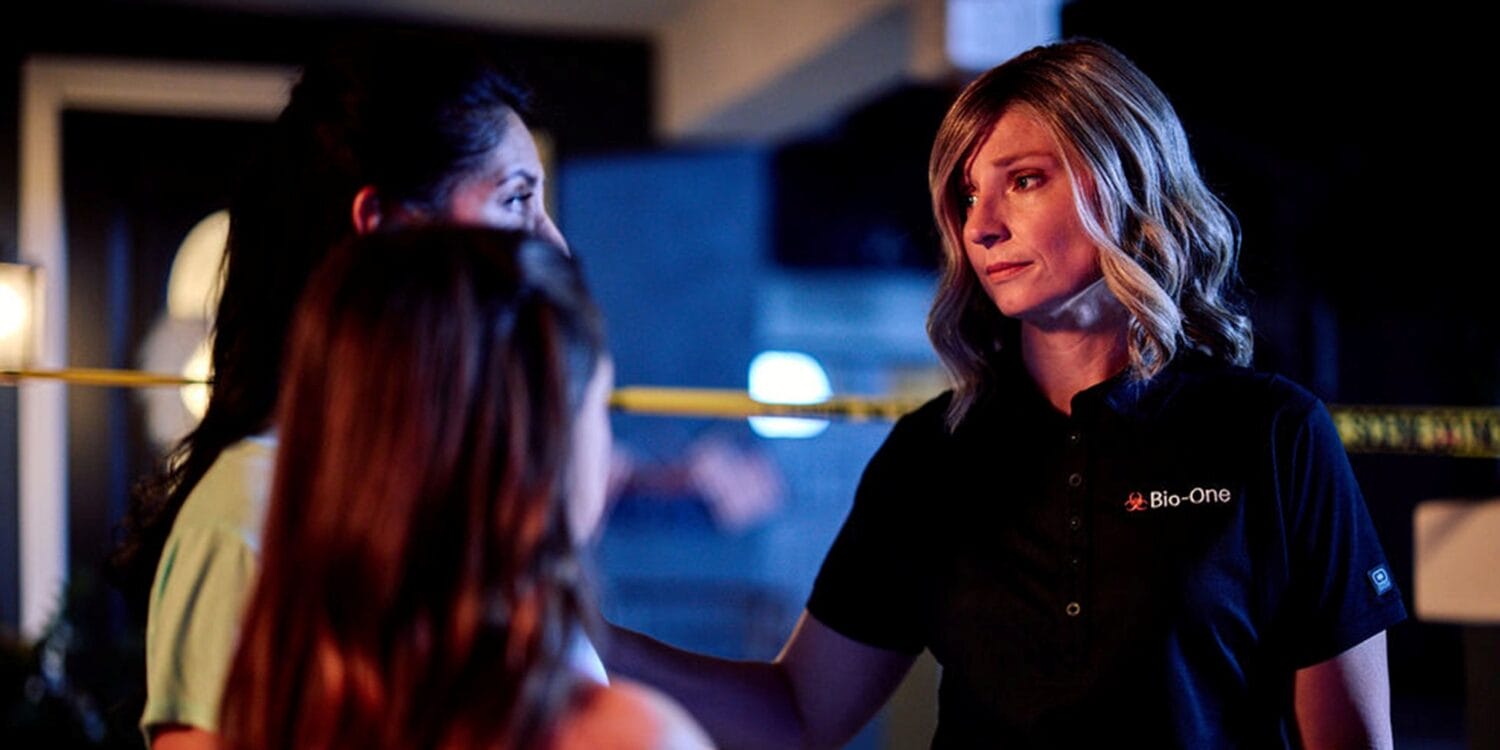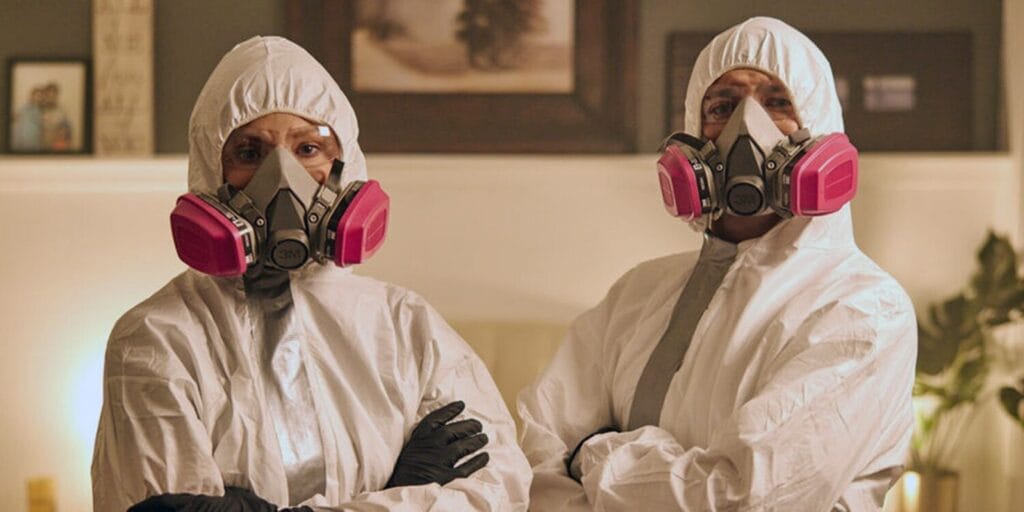Insurance adjusters are critical in managing complex and often emotionally charged claims. Whether dealing with the aftermath of a crime scene, an unattended death, a hoarding situation, or a hazardous spill, they must ensure that affected properties are cleaned and restored efficiently while adhering to strict safety and regulatory standards.
Selecting the right biohazard cleanup partner is not just about hiring a cleaning company—it’s about finding a professional team that understands the urgency, documentation requirements, and legal considerations associated with biohazard remediation.
Not all biohazard cleanup companies operate at the same expertise, professionalism, or compliance level. A qualified partner helps streamline the claims process, minimizes liability risks, and ensures that all cleanup efforts meet health and environmental regulations.
These questions will ensure you’re working with a reliable, certified, and experienced team that handles sensitive cases with care and efficiency.

1. Are You Certified and Properly Trained for Biohazard Cleanup?
Why it Matters:
Biohazard cleanup is not the same as standard cleaning. It involves exposure to potentially infectious materials, including blood, bodily fluids, drug residues, and hazardous waste.
If not handled properly, biohazard contaminants can pose serious health risks to residents, property owners, and even the cleanup crew. Improper handling or disposal can also lead to legal and regulatory consequences for insurance companies and property owners.
Working with an untrained or uncertified company increases the risk of cross-contamination, liability issues, and non-compliance penalties.
What to Look For:
When selecting a biohazard cleanup company, insurance adjusters should verify that the team is properly trained and certified in handling hazardous materials. Key certifications and qualifications to look for include:
- Bloodborne Pathogens Training: This ensures technicians know how to handle materials that may carry infectious diseases such as Hepatitis B, Hepatitis C, and HIV safely.
- Hazardous Materials Training: Prepares technicians to safely identify, handle, and dispose of biohazardous and chemical contaminants.
- OSHA Compliance Certifications: Ensures the company follows workplace safety regulations to protect workers and property owners.
- EPA and State Disposal Regulations: Verifies that the company properly disposes of biohazardous waste following federal and local laws.
- Industry-Specific Training: Some cases require specialized training, such as crime scene decontamination, fentanyl exposure cleanup, and trauma scene remediation.
Insurance adjusters should ask for proof of certification and ongoing training to ensure that cleanup technicians remain current with the latest safety protocols and best practices.
Bio-One’s Advantage:
At Bio-One, we take training and compliance seriously. Our technicians undergo rigorous certification programs, including:
- Bloodborne Pathogens Training to ensure safe handling of biohazardous materials.
- OSHA-certified safety courses for properly using personal protective equipment (PPE) and decontamination procedures.
- Bio-One Training System (BOTS) to identify and remove hazardous substances safely.
- Compliance with all EPA and state-mandated waste disposal regulations.
- Continuous education to stay updated on new biohazard cleanup protocols.
By choosing Bio-One, insurance adjusters can be confident that they are working with a trusted, fully certified biohazard cleanup team that prioritizes safety, compliance, and professionalism in every job.
2. Do You Have Experience Handling Insurance Claims?
Why it Matters:
Insurance adjusters are responsible for processing claims quickly and efficiently while ensuring all services are necessary, properly documented, and within policy guidelines. A biohazard cleanup company unfamiliar with the insurance claims process can create unnecessary delays, incomplete paperwork, or billing discrepancies, complicating the adjuster’s job.
By working with a cleanup partner experienced in insurance documentation, direct billing, and industry regulations, adjusters can ensure a smoother claims process and reduce stress for all parties involved.
What to Look For:
Insurance adjusters should verify that the biohazard cleanup company they work with has direct experience handling insurance claims, including:
- Thorough Documentation: The company should provide before-and-after photos, written assessments, and detailed reports outlining the scope of work and contamination levels.
- Direct Insurance Billing: To minimize the administrative burden on property owners and adjusters, the company should be able to bill insurance providers directly, reducing clients' out-of-pocket costs.
- Itemized Invoices: A professional cleanup company should break down costs into specific line items, ensuring transparency and helping adjusters determine which services fall within policy coverage.
- Knowledge of Insurance Policies: The team should understand how different policies cover biohazard cleanup and be able to provide claim-friendly estimates that meet industry standards.
- Regulatory Compliance: To prevent legal or insurance complications, the company should ensure that all documentation aligns with OSHA, EPA, and state health department regulations.
Bio-One’s Advantage:
At Bio-One, we work closely with insurance adjusters to streamline the claims process and reduce administrative burdens. Our experience in handling biohazard-related insurance claims allows us to provide:
- Comprehensive Documentation: We supply detailed reports, before-and-after photos, and itemized invoices to support insurance claims.
- Direct Insurance Billing: Our team can process payments and claims directly with homeowner’s insurance, property managers, and commercial policies.
- Policy Knowledge: We understand the coverage limitations and requirements for biohazard cleanup and work with adjusters to ensure compliance.
- Fast Response and Claim Processing: We know time is critical, so we work efficiently to complete the cleanup and promptly provide all necessary paperwork.
By partnering with Bio-One, insurance adjusters gain a trusted, experienced biohazard remediation partner who understands the importance of documentation, efficiency, and compliance in claims.

3. How Quickly Can You Respond to an Emergency?
Why It Matters:
In biohazard situations, time is critical. Whether dealing with an unattended death, a crime scene, a hoarding situation, or a sewage backup, the longer biohazardous materials remain on-site, the greater the risk to health, safety, and property integrity.
- Health Risks Increase Over Time: Blood, bodily fluids, and other hazardous materials decompose quickly, leading to harmful bacteria, airborne pathogens, and strong odors that worsen the contamination.
- Structural Damage Can Escalate: Biohazards like sewage backups and unattended deaths can soak into floors, walls, and HVAC systems, causing long-term property damage and higher restoration costs.
- Regulatory Compliance and Liability: Delayed cleanup can result in non-compliance with OSHA, EPA, and local health regulations, leading to potential legal and financial repercussions.
- Emotional Toll on Clients: Families dealing with traumatic events should not have to wait days for a response. A compassionate, quick cleanup minimizes further distress.
For insurance adjusters, a fast-acting cleanup partner reduces claim complexity, limits secondary damage, and helps clients return to normalcy faster.
What to Look For:
When choosing a biohazard cleanup company, insurance adjusters should ensure they provide:
- 24/7 Emergency Response: The company must be available day or night, including weekends and holidays, to handle time-sensitive biohazard situations.
- Rapid On-Site Arrival: Look for a company that can dispatch trained technicians within hours, not days, to prevent further damage and health risks.
- Trained Emergency Teams: The company should have on-call technicians ready to mobilize and equipped with PPE, containment supplies, and industry-grade disinfectants.
- Experience with High-Priority Cases: Not all biohazard companies specialize in emergency response—ensure they can efficiently handle trauma scenes, chemical hazards, or large-scale contamination.
- Strong Communication and Coordination: Quick response means nothing without precise coordination with insurance adjusters, property owners, and first responders to ensure a smooth cleanup process.
Bio-One’s Advantage:
At Bio-One, we understand that biohazard emergencies require immediate action. That’s why we offer:
- 24/7/365 Emergency Availability: We are always on call and ready to respond when disaster strikes—no waiting, no delays.
- Fast Dispatch and On-Site Arrival: Our teams arrive within hours to assess the situation and begin cleanup, preventing further contamination.
- Trained and Certified Emergency Technicians: Our experts come prepared with the latest equipment, PPE, and industry-standard protocols to contain, disinfect, and restore the affected area.
- Coordinated Insurance Support: We work alongside insurance adjusters to document the damage, submit necessary reports, and expedite the claims process.
- Discreet and Compassionate Service: Many emergencies involve trauma, so we arrive in unmarked vehicles and handle every job with sensitivity and respect.
By choosing Bio-One, insurance adjusters can trust that their clients will receive immediate, expert care, minimizing further damage and ensuring claims are handled quickly and efficiently.
4. Do You Follow Proper Disposal and Decontamination Procedures?
Why It Matters:
Biohazardous materials—including blood, bodily fluids, infectious waste, and contaminated materials—cannot be treated like regular trash. Improper handling, transport, or disposal of these substances can result in:
- Health Risks: Exposure to biohazards can lead to the spread of infectious diseases, including Hepatitis B, Hepatitis C, HIV, and bacterial infections.
- Environmental Contamination: Improper disposal of biohazardous waste can pollute water sources, soil, and air, creating long-term ecological damage.
- Legal and Regulatory Issues: OSHA, the EPA, and state health departments enforce strict disposal and decontamination guidelines. Failure to comply can result in fines, lawsuits, and liability claims against insurance providers and property owners.
- Cross-Contamination Risks: Incomplete or improper decontamination can leave behind dangerous pathogens, making the space unsafe for future occupancy.
For insurance adjusters, working with a biohazard cleanup company that follows proper disposal procedures ensures compliance, prevents liability risks, and protects all parties involved.
What to Look For:
When vetting a biohazard cleanup company, insurance adjusters should confirm that the company:
- Follows OSHA, EPA, and State Regulations: Compliance with local and federal laws ensures safe handling, transport, and disposal of biohazardous waste.
- Uses Certified Medical Waste Disposal Services: The company should work with licensed disposal facilities specializing in incineration or sterilizing biohazardous waste.
- Properly Decontaminates Surfaces and Air: Effective cleanup involves more than just removing visible contaminants. Look for companies that:
- Use hospital-grade disinfectants and EPA-approved cleaning agents.
- Testing to verify surface sanitation.
- Implement odor removal techniques such as hydroxyl generators or ozone treatments.
- Follows Chain-of-Custody Documentation: Proper biohazard cleanup includes detailed tracking of waste disposal from collection to final disposal, ensuring compliance.
- Uses Industry-Standard PPE and Safety Protocols: Cleanup crews should be equipped with respirators, hazmat suits, gloves, and eye protection to prevent exposure and contamination.
Bio-One’s Advantage:
At Bio-One, safety and compliance are our top priorities. We strictly follow all federal, state, and local biohazard disposal regulations, ensuring that every job is handled with the utmost care.
- OSHA and EPA Compliance: Our team is fully trained in hazardous waste handling and disposal, ensuring complete regulatory adherence.
- Licensed Biohazard Waste Disposal: We work with approved medical waste disposal facilities to safely remove and dispose of biohazardous materials.
- Thorough Decontamination Process: We go beyond surface cleaning, using industrial-grade disinfectants, fogging techniques, and ATP testing to verify decontamination.
- Complete Documentation and Reporting: We provide detailed records of the cleaning and disposal process, ensuring transparency and compliance for insurance claims.
- Cross-Contamination Prevention: Our technicians follow strict containment procedures to prevent the spread of biohazards to unaffected areas.
By choosing Bio-One, insurance adjusters can trust that biohazardous materials will be handled safely, legally, and efficiently, reducing liability risks and ensuring a fully restored environment.

5. How Do You Ensure Discretion and Compassion During the Cleanup Process?
Why It Matters:
Biohazard cleanup is more than just a technical job—it often involves deeply emotional and traumatic situations. Whether responding to a crime scene, an unattended death, a suicide, or a hoarding situation, cleanup crews are often working in the homes and businesses of individuals who are grieving, in distress, or facing significant hardship.
- Emotional Sensitivity: Families and property owners may be dealing with shock, trauma, or loss, making it crucial for the cleanup team to approach the situation with care and empathy.
- Privacy and Confidentiality: Many clients prefer to keep biohazard incidents private, whether due to personal reasons, legal matters, or concerns about stigma.
- Avoiding Additional Distress: A cold or unprofessional approach can exacerbate emotional pain, making the experience even more difficult for those involved.
- Business and Rental Property Concerns: Property managers, landlords, and business owners need discreet cleanup to avoid alarming tenants, employees, or customers.
For insurance adjusters, choosing a compassionate, professional, and discreet biohazard cleanup partner ensures that affected individuals receive support during a difficult time while protecting the property owner's or business's reputation.
What to Look For:
When selecting a biohazard cleanup company, insurance adjusters should ensure that the team demonstrates:
- Discreet Operations: The company should use unmarked vehicles and uniforms to maintain privacy.
- Compassionate and Trained Technicians: Team members should be trained in emotional sensitivity and trauma-informed response techniques to interact appropriately with grieving families.
- Respectful Communication: Cleanup professionals should explain the process with care and understanding, avoiding clinical or harsh terminology.
- Confidentiality Commitment: The company should guarantee strict privacy policies, ensuring that sensitive information about the incident remains secure.
- Coordination with Families and Property Managers: The cleanup team should work closely with adjusters, families, and business owners to minimize disruption and ensure a smooth process.
Bio-One’s Advantage:
At Bio-One, we understand that our work goes beyond cleaning—it’s about helping people during some of the most challenging moments of their lives. We approach every job with compassion, discretion, and professionalism to support those affected.
- Unmarked Vehicles for Privacy: We arrive in discreet, unmarked vehicles, ensuring that neighbors, customers, or passersby are unaware of the nature of the work.
- Trauma-Informed Training: Our technicians are trained to handle sensitive situations with care, patience, and respect for grieving families and property owners.
- Quiet, Efficient Cleanup Process: We work quickly and unobtrusively to complete the cleanup without unnecessary attention.
- Clear and Compassionate Communication: We explain the cleanup process in a reassuring and supportive manner, ensuring families and adjusters understand each step.
- Confidentiality and Respect: We treat every case with strict confidentiality, protecting the privacy and dignity of those involved.
By partnering with Bio-One, insurance adjusters can ensure clients receive expert biohazard cleanup services with the care and respect they deserve, providing peace of mind during an incredibly challenging time.
6. What Additional Services Do You Offer?
Why It Matters:
Biohazard cleanup often involves more than simply removing hazardous materials. Some cases—hoarding situations, crime scenes, trauma events, and severe property neglect—require a full range of remediation services to restore a property to a livable or business-ready condition.
- Hoarding Cleanup Requires More Than Just Decluttering: Many hoarding cases involve biohazards such as mold, animal waste, pest infestations, and structural damage, requiring specialized remediation beyond simple junk removal.
- Crime Scene Cleanup Involves Extensive Decontamination: Blood, bodily fluids, and forensic chemicals can soak into flooring, walls, and furniture, requiring deep cleaning, odor removal, and sometimes demolishing contaminated materials.
- Unattended Deaths Create Lingering Health Risks: Decomposition can release harmful bacteria and airborne pathogens, requiring advanced deodorization techniques, ATP testing, and sanitation.
- Sewage Backups and Infectious Disease Cleanup Demand Specialized Expertise: Pathogens present in sewage, MRSA outbreaks, and viral contamination require hospital-grade disinfectants and containment procedures to prevent further exposure.
Working with a full-service remediation company simplifies the claims process for insurance adjusters. It reduces the need for multiple vendors and ensures that the property is completely restored in a coordinated effort.
What to Look For:
When selecting a biohazard cleanup company, insurance adjusters should seek a partner that offers a comprehensive suite of services, including:
- Full-Spectrum Biohazard Cleanup: The company should handle crime scene cleanup, trauma cleanup, suicide cleanup, hoarding cleanup, and unattended death remediation.
- Structural Cleaning and Remediation: Some biohazards penetrate surfaces, requiring advanced decontamination and demolition of compromised materials.
- Odor Removal and Air Purification: After removing a biohazard, odor molecules can linger in walls, carpeting, and HVAC systems. Look for companies that use:
- Ozone treatments
- Hydroxyl generators
- HEPA filtration systems
- Hoarding Cleanup and Debris Removal: The company should not only remove clutter but also sanitize the space, remove contaminants, and provide long-term support for individuals affected by hoarding disorder.
- Sewage and Water Damage Cleanup: Flooding and backups introduce bacteria, viruses, and mold, requiring specialized disinfection and dehumidification to prevent long-term damage.
- Infectious Disease and COVID-19 Cleanup: Some properties may require viral disinfection services to contain and eliminate pathogens from outbreaks.
Bio-One’s Advantage:
At Bio-One, we provide end-to-end remediation services, ensuring that properties are cleaned and restored to a safe and habitable condition.
- Comprehensive Biohazard Cleanup: We handle all biohazard-related incidents, from crime scenes and suicides to hoarding, sewage, and hazardous waste cleanup.
- Advanced Odor Removal: Our teams use industrial-grade air purification technology, including ozone machines, hydroxyl generators, and deep-cleaning solutions to remove stubborn odors.
- Hoarding and Extreme Cleaning: We provide compassionate, full-service hoarding cleanup, including clutter removal, sanitization, and pest control coordination.
- Sewage and Water Damage Mitigation: We decontaminate, disinfect, and dry affected areas to prevent mold growth and structural damage.
- Full-Service Restoration Support: We coordinate with contractors, restoration teams, and insurance adjusters to ensure properties are returned to pre-incident conditions.
By partnering with Bio-One, insurance adjusters can streamline claims by working with a single, trusted provider that offers both biohazard removal and complete property remediation. This ensures clients receive the most thorough and professional service possible.

A Reliable Biohazard Cleanup Partner Makes All the Difference
Selecting the right biohazard cleanup partner ensures a smooth and efficient claims process. Insurance adjusters must navigate complex cases involving health risks, regulatory requirements, and emotional sensitivities, so working with a qualified and experienced remediation team is essential.
By carefully vetting biohazard cleanup companies with key questions—about certifications, insurance expertise, emergency response times, regulatory compliance, discretion, and additional services—adjusters can avoid delays, compliance issues, and costly mistakes.
A trusted biohazard remediation partner doesn’t just clean up hazardous materials; they streamline documentation, reduce liabilities, and provide both adjusters and property owners peace of mind.
At Bio-One, we check all the boxes—offering:
- 24/7 rapid response to minimize damage and risk.
- Certified, highly trained technicians ensuring safety and compliance.
- Insurance-friendly documentation to support smooth claim approvals.
- Compassionate and discreet service for families, businesses, and property managers.
- Comprehensive remediation solutions beyond biohazard cleanup.
By partnering with Bio-One, insurance adjusters gain a dependable ally who understands biohazard claims' urgency, complexity, and sensitivity. Our experience, responsiveness, and commitment to excellence make us the preferred choice for insurance professionals nationwide.
FAQ
What certifications should a biohazard cleanup company have?
A qualified biohazard cleanup team should have certifications in Bloodborne Pathogens Training, Hazardous Materials Handling, OSHA Compliance, and adherence to EPA and state disposal regulations. These certifications ensure they follow safety protocols and legal requirements.
Does Bio-One handle insurance claims directly?
Yes, Bio-One has extensive experience working with insurance adjusters. We provide thorough documentation, itemized invoices, and direct insurance billing to streamline the claims process and reduce the administrative burden.
How quickly can Bio-One respond to an emergency?
Bio-One offers 24/7 emergency response and can dispatch trained technicians within hours to prevent further contamination, reduce health risks, and ensure a rapid cleanup process.
What are the risks of hiring an uncertified biohazard cleanup company?
Working with an untrained or uncertified company can lead to improper decontamination, cross-contamination risks, legal and regulatory penalties, and increased liability for insurance adjusters and property owners.
How does Bio-One ensure proper disposal of biohazardous waste?
We strictly follow OSHA, EPA, and state regulations, working with licensed medical waste disposal facilities to safely transport and dispose of biohazardous materials.
What additional services does Bio-One offer besides biohazard cleanup?
Bio-One provides hoarding cleanup, odor removal, sewage and water damage remediation, crime scene decontamination, trauma cleanup, and infectious disease disinfection.
How does Bio-One ensure discretion and compassion during cleanup?
Our team arrives in unmarked vehicles, follows trauma-informed training, and communicates with sensitivity and respect. We prioritize privacy and work discreetly to minimize further distress for those affected.
What should insurance adjusters look for in a biohazard cleanup partner?
Adjusters should verify certifications, check for experience in handling insurance claims, confirm emergency response capabilities, review compliance with disposal regulations, and assess the company’s reputation for professionalism and discretion.


